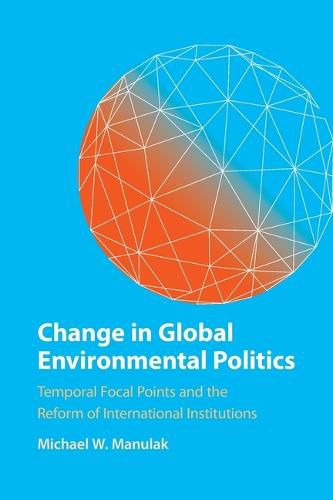Readings Newsletter
Become a Readings Member to make your shopping experience even easier.
Sign in or sign up for free!
You’re not far away from qualifying for FREE standard shipping within Australia
You’ve qualified for FREE standard shipping within Australia
The cart is loading…






As wildfires rage, pollution thickens, and species disappear, the world confronts environmental crisis with a set of global institutions in urgent need of reform. Yet, these institutions have proved frustratingly resistant to change. Introducing the concept of Temporal Focal Points, Manulak shows how change occurs in world politics. By re-envisioning the role of timing and temporality in social relations, his analysis presents a new approach to understanding transformative phases in international cooperation. We may now be entering such a phase, he argues, and global actors must be ready to realize the opportunities presented. Charting the often colorful and intensely political history of change in global environmental politics, this book sheds new light on the actors and institutions that shape humanity's response to planetary decline. It will be of interest to scholars and advanced students of international relations, international organization and environmental politics and history.
$9.00 standard shipping within Australia
FREE standard shipping within Australia for orders over $100.00
Express & International shipping calculated at checkout
As wildfires rage, pollution thickens, and species disappear, the world confronts environmental crisis with a set of global institutions in urgent need of reform. Yet, these institutions have proved frustratingly resistant to change. Introducing the concept of Temporal Focal Points, Manulak shows how change occurs in world politics. By re-envisioning the role of timing and temporality in social relations, his analysis presents a new approach to understanding transformative phases in international cooperation. We may now be entering such a phase, he argues, and global actors must be ready to realize the opportunities presented. Charting the often colorful and intensely political history of change in global environmental politics, this book sheds new light on the actors and institutions that shape humanity's response to planetary decline. It will be of interest to scholars and advanced students of international relations, international organization and environmental politics and history.